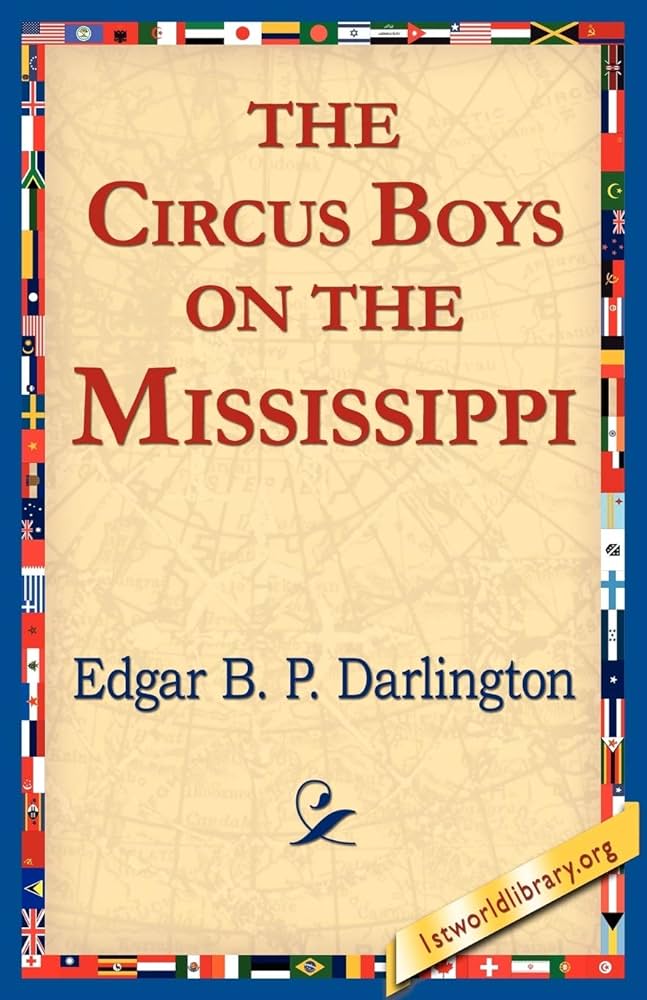Chapter XVIII — The Circus Boys on the Mississippi
byChapter XVIII begins with a scene full of momentum and mystery. Phil and Mr. Sparling rush through the narrow passages of the circus boat, their footsteps echoing with urgency. The pursuit divides them—Phil heads to the rear while Sparling pushes forward. In the dim light and tight quarters, every shadow becomes a suspect. At the stern, Phil finally corners the fleeing figure. With heart pounding, he seizes the person, expecting a stranger. To his shock, it’s Teddy Tucker. What began as a manhunt ends in disbelief and laughter, blurring the line between confusion and relief.
Phil and Mr. Sparling are at first baffled. The idea that Teddy could be behind something suspicious doesn’t quite add up, but they can’t ignore what they saw. Sparling, maintaining authority, calls Teddy to his cabin. The atmosphere inside is tense, the air thick with questions. Teddy enters, more curious than nervous, and Sparling wastes no time. Accusations of eavesdropping are put forward, which Teddy refutes with an expression of sheer puzzlement. He insists he was following someone else entirely. A man, unknown to him, had acted oddly near the cabin window—Teddy thought he might be a thief.
As Teddy elaborates, a different picture emerges. He hadn’t been spying but rather playing amateur detective. Earlier, he had been on the hunt for his missing egg, a personal mystery that had consumed his thoughts. So, when he saw a figure sneaking about, he acted on instinct. His pursuit led him to the same area where Sparling and Phil had been speaking, creating a perfect storm of misunderstanding. His presence was misconstrued, and in the heat of the moment, he became the accidental villain. Teddy’s earnest defense is both comical and believable, revealing the accidental nature of the entire encounter.
Mr. Sparling listens carefully, gradually softening as the story unfolds. He’s been around long enough to know the difference between guilt and a good story. Teddy’s version rings true. There’s no deceit in his wide-eyed frustration. Phil, too, begins to chuckle, realizing how a single moment of assumption created an entire chase. In the world of circus life, where so many oddities occur daily, this kind of mix-up almost feels ordinary. Still, Sparling emphasizes the need for discretion. Mistakes may be forgiven, but trust must always be earned.
With the misunderstanding cleared up, the tension fades. Teddy is left embarrassed but not reprimanded harshly. Mr. Sparling, in a tone more playful than punishing, suggests Teddy keep his detective work within bounds. Everyone laughs, but the episode serves as a reminder of how quickly suspicion can spiral. Even friends aren’t immune to misjudgment in tight situations. The boys exit the cabin with lighter hearts, their bond unshaken by the temporary friction. They walk away with another shared story to add to their growing list of riverboat adventures.
This chapter captures the essence of youth: curiosity, missteps, and the laughter that follows both. Though small in scale, the event reflects the deeper connection between the characters. They are not only performers but a family, navigating life on a floating stage where drama and comedy share equal time. Teddy’s actions, while misguided, stemmed from genuine concern. His spirit of vigilance, though imperfect, proves valuable in the unpredictable world they inhabit. This narrative thread, rich with misunderstanding and good humor, adds warmth and relatability to their continuing journey.

